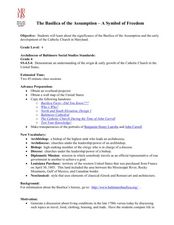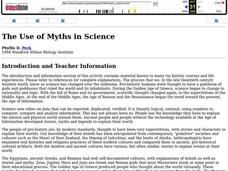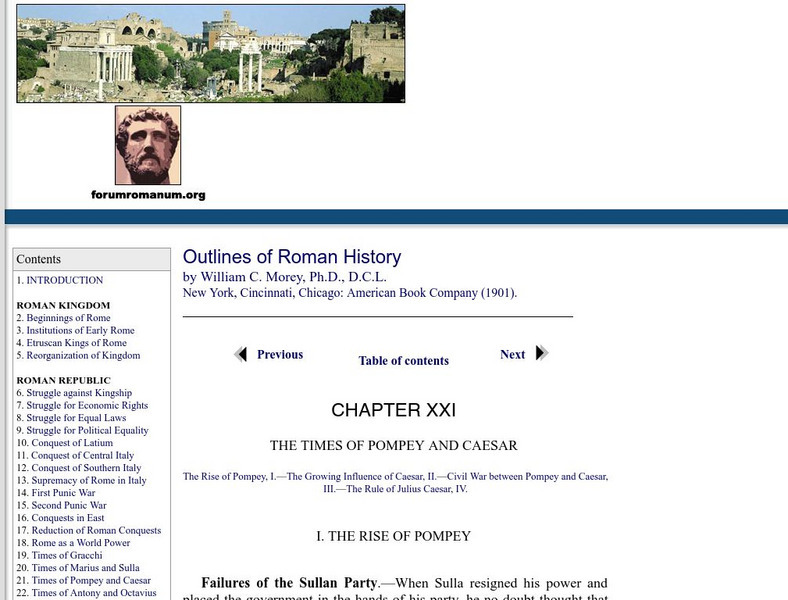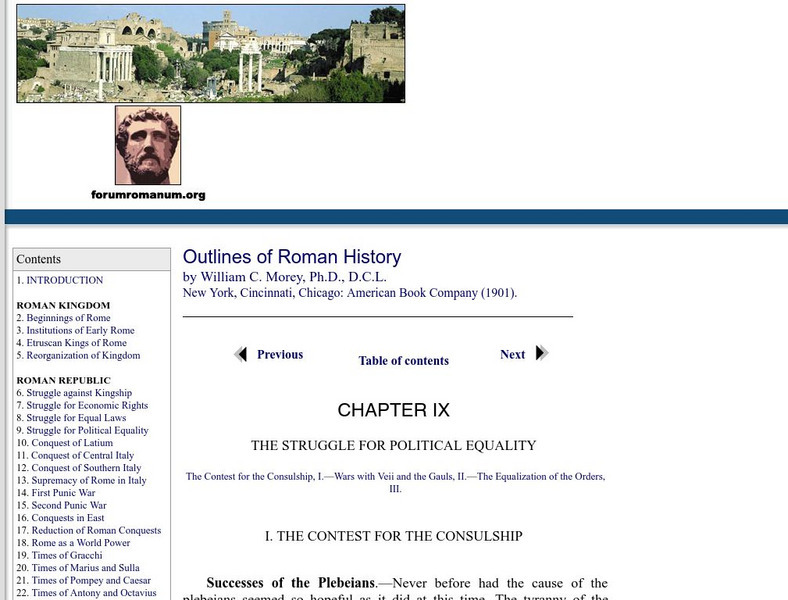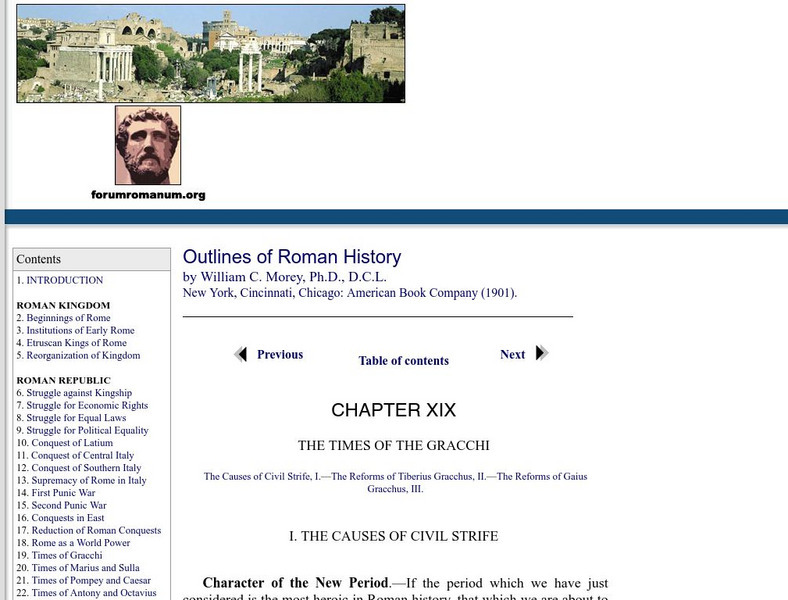Curated OER
Benito Mussolini
For this Benito Mussolini study guide worksheet, learners read a brief overview pertaining to the ruler and fascism and then respond to 5 reflection questions.
Curated OER
Pirates: Quiz 95
In this pirates worksheet, students answer multiple choice questions about different pirates of the past. Students answer 12 questions total.
Curated OER
The Basilica of the Assumption-A Symbol of Freedom
Fourth graders explore the importance of the Basilica of Assumption and the development of the Catholic Church in Maryland. In this social studies lesson, 4th graders discuss the Basilica of the Assumption and the Catholic Church.
Curated OER
The Use of Myths in Science
Students are told stories, myths and legend to explain their world. After telling the tales and discussion them, students are assigned to write a myth that describes a familiar situation, such as why the school garbage cans are always...
Curated OER
The Use of Myths in Science
Students examine folk tales to determine the basis for scientific myths. They demonstrate through the discussion of the folk tales that the perception of the world has changed as new information is gained. They write their own folk...
Facing History and Ourselves
We and They, the Armenians in the Ottoman Empire
Learners examine World War I war crimes. For this world history instructional activity, high schoolers use primary and secondary sources to research and understand the action taken by the United States during the Armenian Genocide....
Curated OER
The Rise of Islam
In this Islamic medicine worksheet, students read about the rise of Islam and the history of medicine within the culture. Students read 5 passages.
Curated OER
Bouncing Sunlight
Third graders use flashlights and balls to demonstrate how the light bounces off of the sun and reflects onto the moon. They record their observations in a journal.
Curated OER
A Caravan Of Camels
Fourth graders discuss the role the Silk Road had in trade and commerce practices in China during different Chinese dynasties. The lesson plan evaluation consists of individual student writing assignments.
Curated OER
The Philippines-U.S. Involvement
Young scholars research and discuss the rational for U.S. involvement in the Philippines. They discuss overall foreign and domestic policies of the U.S. Then they create a timeline that highlights this impact.
Curated OER
American Contemporary
Students are introduced to the American Contemporary period in design. As a class, they examine the various types of design techniques used in this period by watching a PowerPoint presentation. To end the lesson plan, they sketch their...
Curated OER
Mineral Munch
Second graders explore the sodium content in foods they eat. After observing a table setting, 2nd graders then identify items made from rock. They taste low sodium crackers and compare them to regular crackers. Students discuss the...
Curated OER
Persuasive Paper: RFID
Young scholars write a persuasive essay. In this persuasive writing lesson plan, students argue either for or against RFID technology. Young scholars research RFID both as a class and individually, and follow paragraph-by-paragraph...
Curated OER
The Geography of Renaissance
Students use the internet to research the geography of the Renaissance. Using maps of Europe, they identify at least three key cities during the time period and discuss the main types of transportation. They research the various customs...
Forum Romanum
Outlines of Roman History: The Rule of Julius Caesar
Read about Julius Caesar's reforms of the Roman government in this passage from William Morey's 1901 textbook.
National Geographic
National Geographic: Republic to Empire: Government in Ancient Rome
Study two governments in Ancient Roman history and consider the differences and similarities which impacted the societies.
Forum Romanum
Outlines of Roman History: Roman Government
Find out how Rome evolves from a democratic republic to a government controlled essentially by the wealthy. It works for a long time.
Forum Romanum
Outlines of Roman History: Institutions of Early Rome: The Early Roman Government
This article explains how early government of the Roman city-state evolved. The foundation of the government under the Roman Republic was established during the Roman monarchy.
Forum Romanum
Outlines of Roman History: The Contest for the Consulship
The Roman Republic continues to evolve, incorporating plebeians into the government. New offices are added to the government in an attempt to keep both the patricians and plebeians satisfied.
Forum Romanum
Outlines of Roman History: Rome and the Provinces
Rome's great strength was her brilliance in governing. Read how she organized and governed her provinces. The "law of nations", ius gentium, evolved into consistent justice throughout Roman lands.
Forum Romanum
Outlines of Roman History: Five Good Emperors: Reign of Trajan
This passage from William Morey's 1901 textbook tells about Trajan, one of Rome's greatest rulers. Included is a chart showing all the Roman provinces and the dates they were acquired.
Forum Romanum
Outlines of Roman History: Times of the Gracchi: Causes of Civil Strife
In a chapter from William Morey's 1901 textbook, he explains the make-up of the Roman populus at the beginning of the Late Republic.
Forum Romanum
Outlines of Roman History: Times of Marius and Sulla: Rise of Marius
In this section of a chapter in William Morey's 1901 textbook, you will find out about Marius and his reorganization of the Roman army.
Forum Romanum
Outlines of Roman History: The Growing Influence of Caesar
When reading this passage from William Morey's 1901 textbook, you'll find out about the beginnings of Julius Caesar's power in the Roman Republic.




